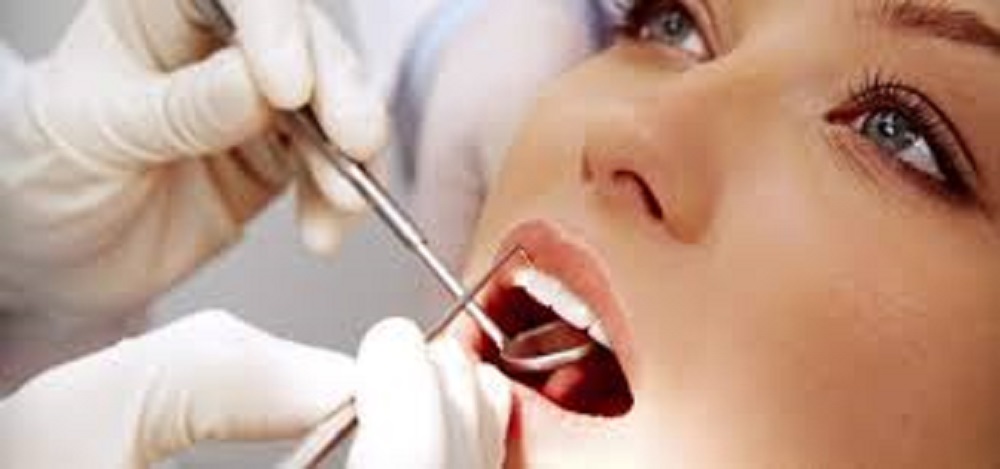14 Things Your Dentist Does During your Dental Examination
Dental Examination: Ever wondered what your dentist does during your dental examination? Here’s the most interesting things you should know before your next dentist visit:
Important Things Your Dentist Does During Your Dental Examination
Checks your skin on your face – Particularly the lower third of your face, between the nose and chin. This is the most common area for skin cancers. We check for unusual appearance of the skin. The dental light is very bright, and our magnified glasses allow us to detect changes, and refer you to your GP for further examination if needed. We might suggest a high SPF sunscreen for your face and/or a moisturizer for areas with sun damage to protect them from further changes.
Palpates your lymph nodes – Swelling of the lymph nodes in your neck and under your chin can be a sign of underlying systemic illness or infection.
Checks your Jaw Joints – Pain, discomfort, crunching sounds, and lateral movement when opening and closing the jaw joint are usually signs of Temporomandibular Joint Dysfunction.
Checks the soft tissues inside your mouth, including the tongue, floor of mouth, palate, and inside of the cheeks. Just like changes to your skin, changes in the appearance of your soft tissues can be an indicator of potential sinister changes in the tissue.
Ensures your dental X-rays are up to date. These are used by us to determine that there are no new areas of decay, no unerupted teeth, and to screen for abnormalities such as cysts and tumours.
Unfortunately, most dental disease and dental pathology is only detectable by the patient when in its very advanced stages, so routine x-ray screenings can prevent a lot of complicated treatment from being needed.
Diagnoses areas of decay, gum disease, bone loss, erosion, wear, and abrasion. A visual clinical examination allows us to find these and plan to repair them, hopefully before they cause you trouble.
At this time, we can give you a quote for treatment needed, and if you have private health cover, we can swipe your health fund card to see how much your fund will pay out on your upcoming treatment.
Checks for clenching and grinding habits. There are clues in your mouth that indicate you have been clenching or grinding your teeth. These allow your dentist to monitor, repair and prevent further damage to your teeth, soft tissues, and jaw joints.
Detects underlying systemic conditions. It’s a surprise to many people that often their dentist is the first person to notify them that things might be “not quite right” with their overall health. There are many signs in the mouth that indicate serious health conditions such as heavily bleeding pale gums, unusually pigmented gums, unusual erosion, and bad breath.
Dentists are trained to screen for these and rule out dental causes before referring you to your medical practitioner for further investigation.
Considers systemic causes. Firstly, we start dental examination by regularly checking your medical history with you. There is a significant number of medications and health conditions that increase the risk and rate of tooth decay and gum problems.
For our patients undergoing significant health situations, such as chemotherapy or radiotherapy, the dentist may suggest more frequent dental visits so that we may monitor things closely.
For example, dehydration of the mouth and body is one of the most common side effects of many medications and medical treatments. This often results in chalky white spots on the enamel which are more prone to decay,
Reviews your oral hygiene and dietary habits. Your dentist will make sure that you are using the optimum toothbrush, floss, and toothpaste in order for you to avoid future dental problems. Being sure to remove all plaque regularly is so important in preventing dental issues and your dentist will help you to select the best oral care tools for your mouth and will let you know of any spots that might need some extra attention.
Monitors for dental disease risk. Your dentist will consider your history of dental decay and wear, and gum problems during dental examination and then they will plan how often they should see you for hygiene recalls. When considering your dental disease risk, they’ll suggest medicaments and additional dental aids to protect teeth and gums from decay, gum disease and wear.
Requests appropriate dental treatment to remedy dental concerns that have been detected. Our dentist decides on the order of such treatment in order of most urgent to least urgent. While doing dental examination, the dentist will also itemize any codes required by your private health insurance. This allows us to do an instant quote for your health insurance after your examination so you can budget for each upcoming visit for dental treatment.
Refers to and liaises with other medical and dental professionals. Your dentist will refer you to any dental or medical professionals that they have determined you would benefit from seeing.
Maintains detailed notes – The dental charting, photos, X-Rays, and written notes enable our dentist to thoroughly compare the dentition at every dental examination appointment. This allows us to monitor and note any changes. Also, dental records are legally required to be accurate in the unfortunate event that a patient needs to be identified. Sadly, most dentists will have their records requested by the police or coroner several times in their career.






